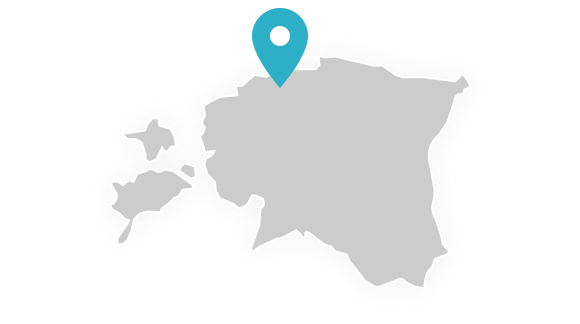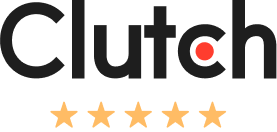Today, a well-chosen CRM system is more than just software – it’s a strategic asset that can transform your business. It serves as the central nervous system for your sales, marketing, and customer service teams, allowing you to increase sales, drive growth, and provide exceptional customer experiences.
We understand that selecting the right CRM can be a daunting task. The market is saturated with options, each with a unique set of features and pricing models. This guide will walk you through the crucial steps to make an informed decision, ensuring you select a CRM that aligns with your specific business needs and long-term goals.
The Simple Steps to a Smart CRM Choice
Step 1: Know What You Need (and Why)
Before you even look at a single product, ask yourself: what’s the big problem we’re trying to solve? Is it boosting sales? Keeping customers happier? Cutting down on paperwork? By defining your goals, you can determine the type of CRM you need. If your goal is to boost sales, you’ll need a system that’s great at tracking leads. If it’s about customer service, you’ll want one with a sound support ticket system.
Step 2: Ask Your Team
Your team will be using this every day. So, you need to ask them what they need. What tasks do they dislike doing repeatedly? What information do they wish they could find faster? Their feedback is valuable. A CRM automation should make their jobs easier, not harder. If they don’t like it, they won’t use it, and your investment will be wasted.
Step 3: Make Your “Must-Have” List
Now that you know your goals and your team’s needs, you can make a list of essential features. Don’t worry about every little detail. Just focus on what you absolutely can’t live without. For sales, that might be a simple way to track your pipeline. For support, it could be a shared help desk. For everyone, ensure the CRM is secure and provides good customer support.
Step 4: Pick a CRM Type
Not all CRMs are the same. They fall into three main types:
- Operational: The all-in-one system that automates daily tasks, such as sending marketing emails or tracking a lead’s journey.
- Analytical: The data guru. It collects and analyzes customer information to give you deep insights into buying habits and trends.
- Collaborative: The team player. It ensures that every department – from sales to support – is sharing customer information, so everyone is on the same page.
Step 5: Set a Budget
CRMs can range from free to very expensive. Set a clear budget from the start. But remember, the price tag isn’t the whole story. Also consider things like setup costs and whether you have to pay more as your team grows. That’s what we refer to as the Total Cost of Ownership.
Step 6: Do Your Homework and Test It Out
Once you have a few options, do some digging. Read reviews from people who actually use the software. Ask other business owners in your industry what they use. And most importantly, take advantage of free trials! Nothing beats trying the software for yourself to see if it feels right.
Once you’ve done your homework and tested a few options, you likely notice a significant difference between the two most common types of CRM: open-source and commercial. As more and more businesses look for solutions with AI automation and deep customization, the choice between these two types becomes even more critical. Let’s take a closer look at a popular option from each category – EspoCRM and Zoho – to highlight the key differences and help you understand the latest CRM trends for 2025.
EspoCRM vs. Zoho: A Quick Comparison
The main differences between EspoCRM and Zoho lie in their business model, customization flexibility, and pricing structures. EspoCRM is an open-source CRM that offers deep customization and control, while Zoho is a proprietary, all-in-one commercial solution with a tiered subscription model.
EspoCRM: Open-Source Flexibility
EspoCRM is designed for businesses that require a highly customizable and scalable CRM. Because it’s open-source, you have full access to the source code and complete control over your data.
- Customization: EspoCRM offers exceptional flexibility. You can customize nearly everything, from entities and fields to workflows and business processes, without being constrained by the vendor’s platform. This makes it ideal for businesses with unique or complex needs, especially those looking for a truly customizable CRM.
- Pricing: The core version of EspoCRM is free of charge. You only pay for optional paid extensions, support, or professional services. This gives you a much lower Total Cost of Ownership (TCO) because there are no per-user license fees.
- Hosting: You can host EspoCRM on your own servers or in a cloud-based CRM, providing complete data sovereignty and control over security and compliance (e.g., HIPAA).
- User Interface: While functional, its UI is often considered less modern compared to proprietary systems, requiring additional effort to achieve a polished user experience.
Zoho: All-in-One Proprietary Solution
Zoho is a comprehensive suite of business applications, with its CRM being a core component. It’s known for its ease of use and extensive built-in features, and its CRM integrations are a significant selling point.
- Customization: While Zoho offers some customization options, such as custom fields and basic workflows, these are constrained by its platform. Deep, core-level changes are not possible.
- Pricing: Zoho operates on a tiered subscription model. You pay per user per month, and the price increases with each tier to unlock more features and higher usage limits. This can lead to higher long-term costs as your business grows.
- Hosting: Zoho is a cloud-based SaaS solution. Your data is stored on Zoho’s servers, which can be a concern for businesses with strict data privacy requirements.
- User Interface: Zoho has a polished, user-friendly interface and offers a wide range of integrated apps for marketing, finance, and support, making it an attractive all-in-one solution for many businesses.
Conclusion
Choosing a CRM is a big decision, but it doesn’t have to be a confusing one. The best CRM for small business is the one that fits your unique needs. If you just need a quick, easy system with basic features, a commercial CRM might be a good start. But if you have specific needs, want complete control over your data, and are looking for a system that can grow with you without breaking the bank, a customizable solution like AI CRM is a powerful choice. At Insoftex, we help businesses find a solution that not only meets their needs today but also powers their growth for years to come.







